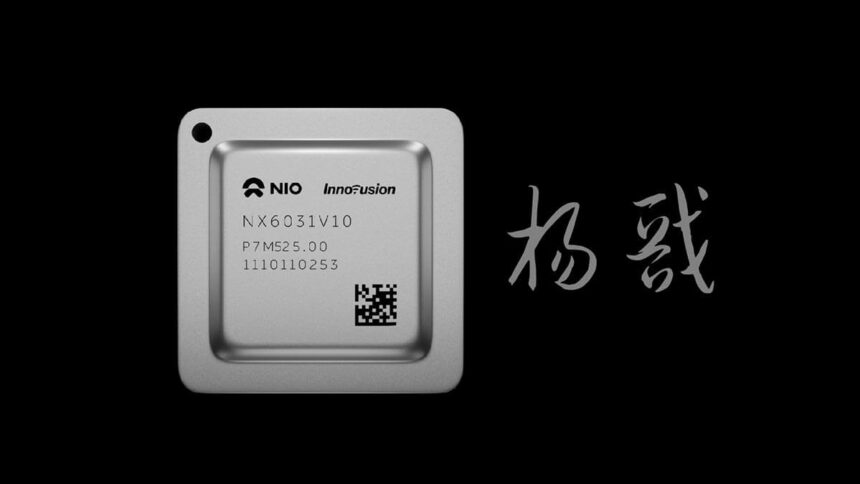China Association of Automobile Manufacturers Urges Caution in Buying U.S. Chips
Following the recent U.S. chip export restrictions that added 140 Chinese entities to the restriction list, the China Association of Automobile Manufacturers (CAAM) has voiced its concerns. In a report by CnEVPost, the association emphasized that U.S. automotive chips may no longer be reliable or secure, advising Chinese companies to exercise caution when sourcing chips from the U.S.
Contrary to this, Chinese tech media outlet ijiwei reported that U.S. giants dominate China’s automotive chip market, surpassing European, Japanese, and Korean competitors.
Despite efforts to increase the localization rate of automotive chips in China, which saw a significant rise by the end of 2023 but remains below 10%, the country still heavily relies on imports for computing, control, power, and storage chips used in automobiles, as indicated by ijiwei.
U.S. Chip Giants Hold Strong Market Presence
As the world’s top vehicle producer, China manufactured 30.16 million vehicles in 2023, reflecting a 12% year-on-year growth, according to Xinhua News Agency. The report further stated that China’s auto exports reached a record high of 4.91 million vehicles in 2023, with a remarkable 57.9% year-on-year increase, largely attributed to the surge in new energy vehicle (NEV) exports.
Despite the growth in production, the localization rate of automotive chips in China remained below 5% for an extended period, with major overseas players such as Texas Instruments, Onsemi, ADI, and Microchip dominating the market.
Notably, U.S. chip heavyweights like NVIDIA, Qualcomm, Wolfspeed, Intel (including Mobileye), and AMD have been making strides in the automotive sector, particularly in smart driving, smart cabins, and next-generation power devices, according to ijiwei.
Turning Point in 2021
The pivotal moment came during the automotive chip shortage in 2021, emphasizing the importance of establishing self-sufficient automotive chip supply chains in China, as highlighted by ijiwei.
Since then, several domestic MCU companies, including Joulwatt, NavInfo, C*Core, GigaDevice, and BYD Semiconductor, have emerged, with the domestic production rate for vehicle-grade MCUs nearing 10%, as reported by ijiwei.
Furthermore, in the automotive CIS sector, China’s OmniVision ranks second only to ON Semiconductor, with companies like Goke Microelectronics, Smartsens, and BYD Semiconductor making significant advancements in recent years, according to ijiwei.
The power device sector has shown rapid progress in domestic production, with BYD Semiconductor, Starpower, and Zhuzhou CRRC Times Electric actively promoting localization efforts, as highlighted by ijiwei.
Anticipated Rise in Localization Rate
Industry forecasts cited by ijiwei suggest that a new wave of U.S. policies is expected to expedite domestic manufacturing processes, projecting China’s domestic automotive chip localization rate to reach 15% by the end of 2024.
Plans from China’s Ministry of Industry and Information Technology, as mentioned by ijiwei, aim for a localization rate of 25% by 2025. Chinese automakers are also driving this shift, with companies like BYD, Geely, Changan, and others either directly involved in chip production or investing in the ecosystem to bolster chip manufacturing, enhancing their chip supply security.
Despite these advancements, challenges remain, particularly in the cockpit chip segment, which is deemed one of the most complex fields for China to navigate, according to ijiwei.







